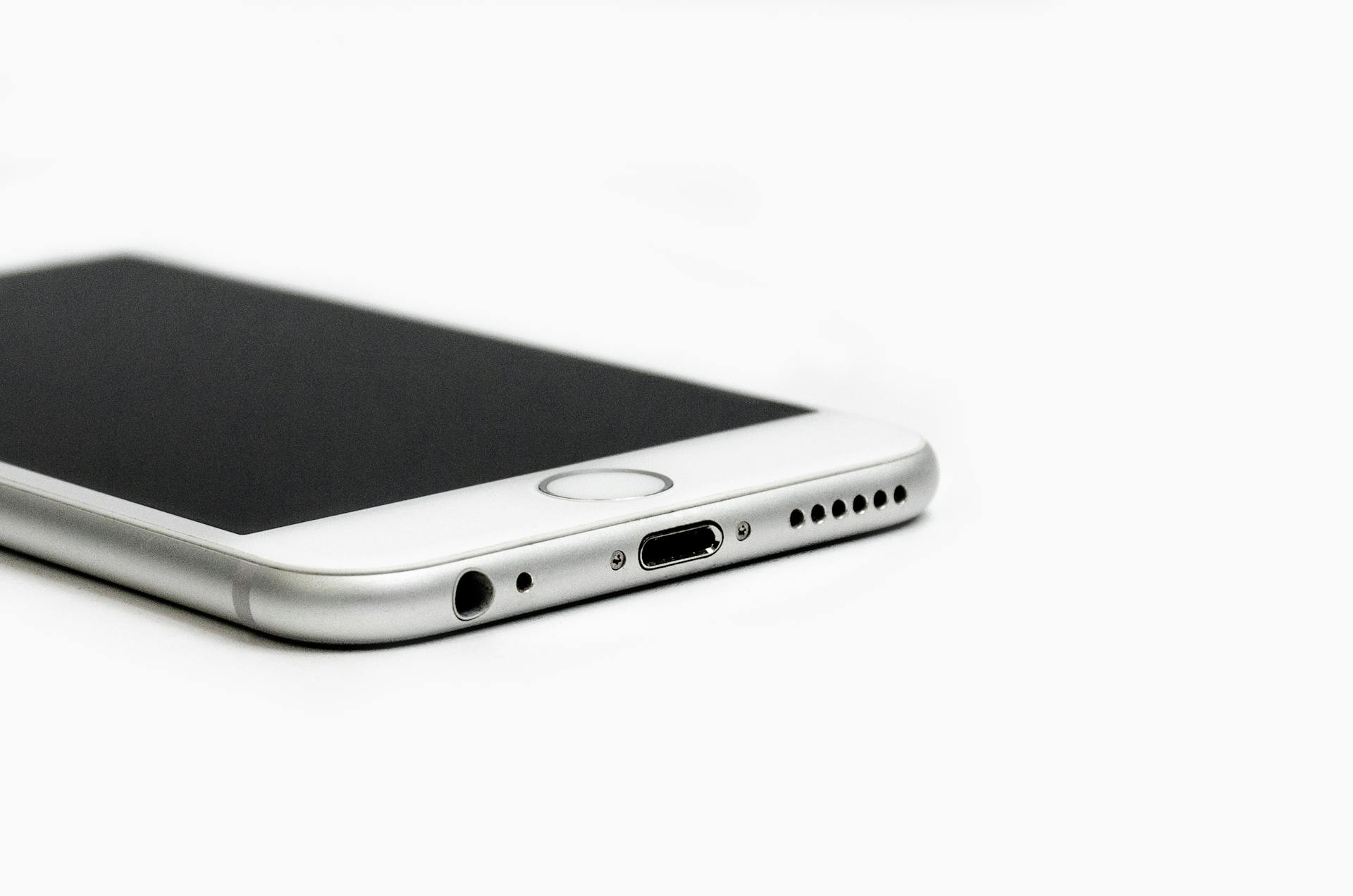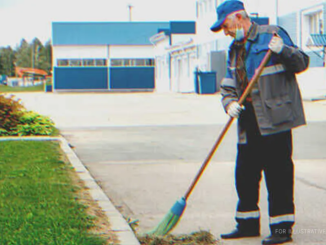What Are Typewriter Eraser Brushes?
The circular objects in the image are typewriter erasers, which came with a small brush attached to them. The erasers themselves were made from soft materials like rubber, often infused with fine abrasives.
This combination was designed to remove ink or typewriter ribbon marks from paper, which was the
primary method of correcting mistakes on a typed document before the advent of white-out or digital editing.

The small brush on the tool was used to gently whisk away the eraser debris left on the paper after erasing a letter or a word. In an age when typewriters ruled the business and literary worlds, these tools were essential to maintaining neat and professional-looking work.
A Snapshot in Time: When Eraser Brushes Were Essential
In the early to mid-20th century, typewriter eraser brushes were as common as correction fluid or digital backspace keys are today. Every typist had one on their desk because, despite their best efforts, mistakes in typing were inevitable. These tools allowed for correcting those mistakes without the need to retype an entire
page.
Back then, carbon paper was often used for making copies, so one mistake could mean fixing multiple sheets of paper. Eraser brushes were gentle enough not to tear the delicate paper yet effective at removing the erroneous marks.
The Decline of the Typewriter Era
With the rise of word processors and eventually personal computers, typewriters
quickly became obsolete. The need for such specialized erasers faded as digital
text allowed for instantaneous editing. Today, these erasers are rare relics from a
time when typing was both an art and a skill.
For those who remember using these eraser brushes, seeing one today is a nostalgic reminder of how much the world of writing and editing has evolved. The phrase “times have changed” has never been truer, especially when comparing the
challenges of fixing a typewritten document to the ease of modern technology’s undo button.
A Niche Collectible
Today, typewriter eraser brushes are considered collectibles. Vintage enthusiasts and lovers of retro office supplies value them for their simplicity and effectiveness. Though they might look out of place in a world dominated by digital devices, they serve as a testament to the ingenuity of past generations and the unique tools
that once supported everyday tasks.
Conclusion: From Essential to Obsolete
For those who’ve never used a typewriter, the tools in the image may seem mysterious, even obsolete. But for older generations, they bring back memories of the rhythmic clacking of typewriter keys, the smell of ink ribbons, and the ever- present eraser brush sitting nearby. Times have certainly changed, and as with many innovations, what was once essential now rests quietly in history’s archives
I Returned Home from Work to Find My Adopted Twin Daughters, 16, Had Changed the Locks and Kicked Me Out

Thirteen years ago, I adopted my late husband’s secret twin daughters after his fatal car crash revealed his double life. I gave them everything, but at sixteen, they locked me out of my home. One week later, I discovered the shocking reason for their actions.
The morning Andrew died began like any other. The sun had just started peeking through my window, painting everything in a soft, golden light that made even my shabby countertops look almost magical.
It was the last normal moment I’d have for a long, long time.

A woman in her kitchen | Source: Midjourney
When the phone rang, I almost didn’t answer it. Who calls at 7:30 in the morning? But something, intuition maybe, made me pick up.
“Is this Ruth?” A man’s voice, formal, hesitant.
“Speaking.” I took another sip of coffee, still watching the steam dance.
“Ma’am, I’m Officer Matthews with the Police Department. I’m sorry to inform you, but your husband was in an accident this morning. He didn’t survive.”

A shocked woman on a phone call | Source: Midjourney
The mug slipped from my hand, shattering against the linoleum. Coffee splashed across my bare feet, but I barely felt it. “What? No, that’s… no… not my Andrew!”
“Ma’am…” The officer’s voice softened. “There’s more you need to know. There was another woman in the car who also died… and two surviving daughters. Records in our database confirm they’re Andrew’s children.”
I slid down the kitchen cabinet until I hit the floor, barely registering the coffee soaking into my robe.

A woman collapsed in shock | Source: Midjourney
The room spun around me as ten years of marriage shattered like my coffee mug. “Children?”
“Twin girls, ma’am. They’re three years old.”
Three years old. Three years of lies, of business trips and late meetings. Three years of another family living parallel to mine, just out of sight. The jerk had been living a whole other life while I’d been suffering through infertility treatments and the heartache of two miscarriages.

Close up of a shocked woman’s face | Source: Midjourney
“Ma’am? Are you still there?”
“Yes,” I whispered, though I wasn’t sure I was. Not really. “What… what happens to them now?”
“Their mother had no living relatives. They’re currently in emergency foster care until—”
I hung up. I couldn’t bear to hear more.

A cell phone | Source: Pexels
The funeral was a blur of black clothes and pitying looks. I stood there like a statue, accepting condolences from people who didn’t know whether to treat me like a grieving widow or a scorned woman.
But then I saw those two tiny figures in matching black dresses, holding hands so tightly their knuckles were white. My husband’s secret daughters.
One had her thumb in her mouth. The other was picking at the hem of her dress. They looked so lost and alone. Despite the hurt of Andrew’s betrayal, my heart went out to them.

Twin three-year-old girls | Source: Midjourney
“Those poor things,” my mother whispered beside me. “Their foster family couldn’t make it today. Can you imagine? No one here for them except the social worker.”
I watched as one twin stumbled, and her sister caught her automatically like they were two parts of the same person. Something in my chest cracked open.
“I’ll take them,” I heard myself say.
Mom turned to me, shocked.

A shocked woman | Source: Midjourney
“Ruth, honey, you can’t be serious. After what he did?”
“Look at them, Mom. They’re innocent in all this and they’re alone.”
“But—”
“I couldn’t have my own children. Maybe… maybe this is why.”
The adoption process was a nightmare of paperwork and questioning looks.

A woman and a man going through paperwork in an office | Source: Pexels
Why would I want my cheating husband’s secret children? Was I mentally stable enough? Was this some form of revenge?
But I kept fighting, and eventually, Carrie and Dana became mine.
Those first years were a dance of healing and hurting. The girls were sweet but wary as if waiting for me to change my mind. I’d catch them whispering to each other late at night, making plans for “when she sends us away.”
It broke my heart every time.

A woman standing outside a bedroom door | Source: Midjourney
“We’re having mac and cheese again?” seven-year-old Dana asked one night, her nose wrinkled.
“It’s what we can afford this week, sweetie,” I said, trying to keep my voice light. “But look — I put extra cheese on yours, just how you like it.”
Carrie, always the more sensitive one, must have heard something in my voice. She elbowed her sister.
“Mac and cheese is my favorite,” she announced, though I knew it wasn’t.

A bowl of macaroni and cheese | Source: Pexels
By the time they turned ten, I knew I had to tell them the truth. The whole truth.
I’d practiced the words a hundred times in front of my bathroom mirror, but sitting there on my bed, watching their innocent faces, I felt like I might throw up.
“Girls,” I started, my hands trembling. “There’s something about your father and how you came to be my daughters that you need to know.”
They sat cross-legged on my faded quilt, mirror images of attention.

Twin ten-year-old girls sitting on a bed | Source: Midjourney
I told them everything about Andrew’s double life, their birth mother, and that terrible morning I got the call. I told them how my heart broke when I saw them at the funeral and how I knew then that we were meant to be together.
The silence that followed felt endless. Dana’s face had gone pale, her freckles standing out like dots of paint. Carrie’s lower lip trembled.
“So… so Dad was a liar?” Dana’s voice cracked. “He was cheating on you?”

A shocked girl | Source: Midjourney
“And our real mom…” Carrie wrapped her arms around herself. “She died because of him?”
“It was an accident, sweetheart. A terrible accident.”
“But you…” Dana’s eyes narrowed, something hard and horrible creeping into her young face. “You just took us? Like… like some kind of consolation prize?”

A frowning girl | Source: Midjourney
“No! I took you because—”
“Because you felt sorry for us?” Carrie interrupted, tears streaming now. “Because you couldn’t have your own kids?”
“I took you because I loved you the moment I saw you,” I reached for them, but they both flinched back. “You weren’t a consolation prize. You were a gift.”

A woman explaining herself | Source: Midjourney
“Liar!” Dana spat, jumping off the bed. “Everyone’s a liar! Come on, Carrie!”
They ran to their room and slammed the door. I heard the lock click, followed by muffled sobs and furious whispers.
The next few years were a minefield. Sometimes we’d have good days when we went on shopping trips or cuddled together on the sofa for movie nights. But whenever they got angry, the knives came out.

A teen girl shouting in her bedroom doorway | Source: Midjourney
“At least our real mom wanted us from the start!”
“Maybe she’d still be alive if it wasn’t for you!”
Each barb found its mark with surgical precision. But they were entering their teens, so I weathered their storms, hoping they’d understand someday.
Then came that awful day shortly after the girls turned sixteen.

A woman glancing over her shoulder | Source: Midjourney
I came home from work and my key wouldn’t turn in the lock. Then I spotted the note taped to the door.
“We’re adults now. We need our own space. Go and live with your mom!” it read.
My suitcase sat by the door like a coffin for all my hopes. Inside, I could hear movement, but no one answered my calls or pounding. I stood there for an hour before climbing back into my car.

A woman in her car | Source: Midjourney
At Mom’s house, I paced like a caged animal.
“They’re acting out,” she said, watching me wear a path in her carpet. “Testing your love.”
“What if it’s more than that?” I stared at my silent phone. “What if they’ve finally decided I’m not worth it? That I’m just the woman who took them in out of pity?”
“Ruth, you stop that right now.” Mom grabbed my shoulders.

A stern woman | Source: Midjourney
“You’ve been their mother in every way that matters for thirteen years. They’re hurting, yes. They’re angry about things neither of you can change. But they love you.”
“How can you be sure?”
“Because they’re acting exactly like you did at sixteen.” She smiled sadly. “Remember when you ran away to Aunt Sarah’s?”
I did. I’d been so angry about… what was it? Something trivial. I’d lasted three days before homesickness drove me back.

A worried woman | Source: Midjourney
Five more days crawled by.
I called in sick to work. I barely ate. Every time my phone buzzed, I lunged for it, only to be disappointed by another spam call or a text from a concerned friend.
Then, finally, on the seventh day, I got the call I’d longed for.
“Mom?” Carrie’s voice was small and soft, like when she used to crawl into my bed during thunderstorms. “Can you come home? Please?”

A woman on a phone call | Source: Midjourney
I drove back with my heart in my throat.
The last thing I expected when I rushed through the front door was to find my house transformed. Fresh paint coated the walls, and the floors gleamed.
“Surprise!” The girls appeared from the kitchen, grinning like they used to when they were little.
“We’ve been planning this for months,” Dana explained, bouncing on her toes. “Working at the mall, babysitting, saving everything.”

A grinning teen girl | Source: Midjourney
“Sorry for the mean note,” Carrie added sheepishly. “It was the only way we could think of to keep it a surprise.”
They led me to what used to be their nursery, now transformed into a beautiful home office. The walls were soft lavender, and there, by the window, hung a photo of the three of us on adoption day, all teary-eyed and smiling.
“You gave us a family, Mom,” Carrie whispered, her eyes wet. “Even though you didn’t have to, even though we were a reminder of everything that hurt. You chose us anyway, and you’ve been the best mom ever.”

An emotional girl holding back tears | Source: Midjourney
I pulled my girls close, breathing in the familiar smell of their shampoo, feeling their hearts beat against mine.
“You two are the best things that have ever happened to me. You gave me a reason to keep going. I love you more than you’ll ever know.”
“But we do know, Mom,” Dana said, her voice muffled against my shoulder. “We’ve always known.”

A woman hugging her daughter | Source: Midjourney
Here’s another story: When Maria’s rebellious sons vanish for 30 harrowing hours, her world unravels. Panic turns to confusion when they return, unwilling to talk about where they’ve been. As their behavior shifts from defiance to secrecy, Maria’s desperation grows — what happened during those missing hours?
This work is inspired by real events and people, but it has been fictionalized for creative purposes. Names, characters, and details have been changed to protect privacy and enhance the narrative. Any resemblance to actual persons, living or dead, or actual events is purely coincidental and not intended by the author.
The author and publisher make no claims to the accuracy of events or the portrayal of characters and are not liable for any misinterpretation. This story is provided “as is,” and any opinions expressed are those of the characters and do not reflect the views of the author or publisher.



Leave a Reply